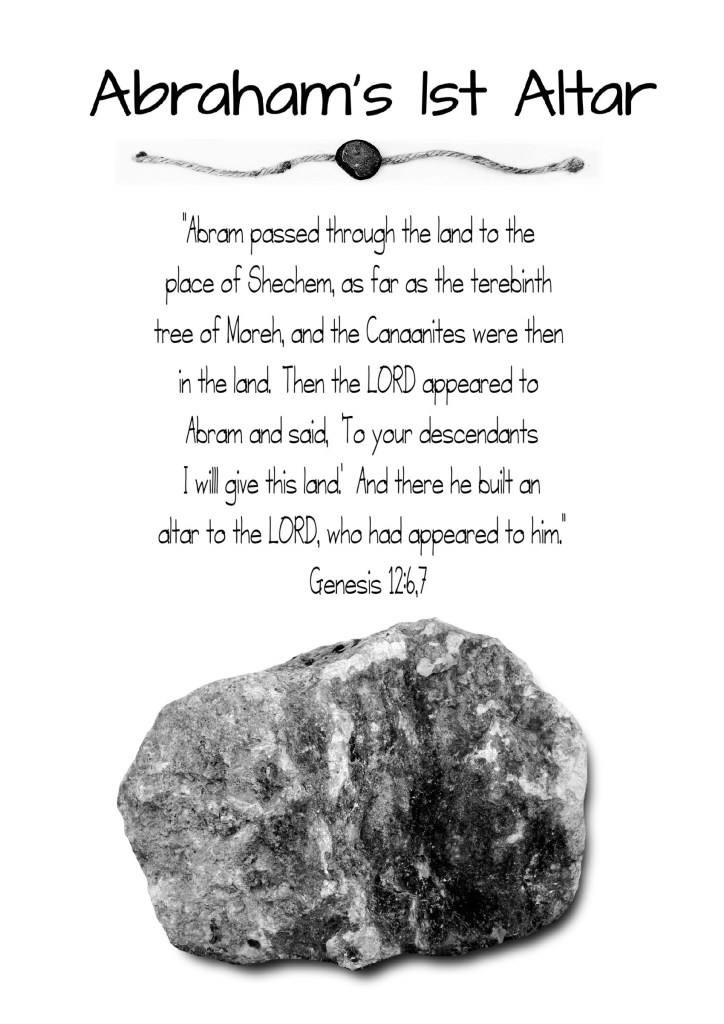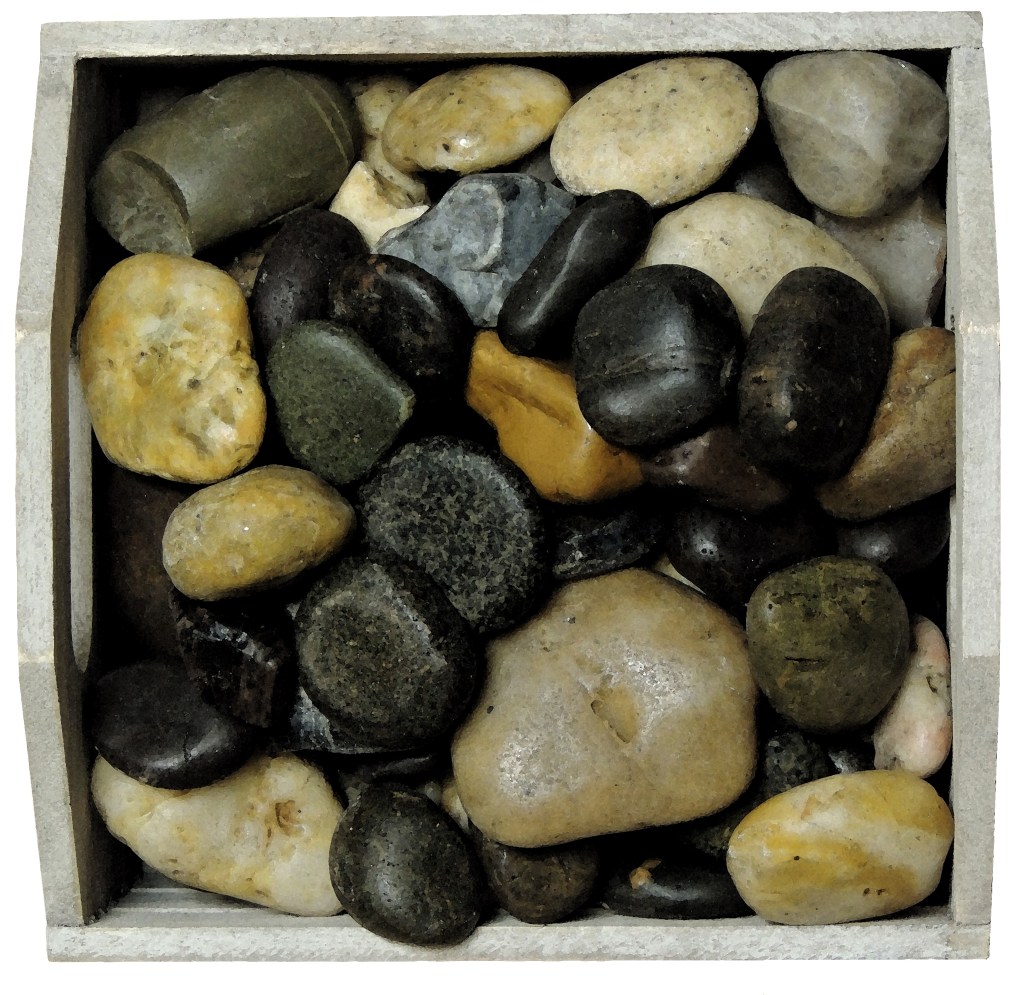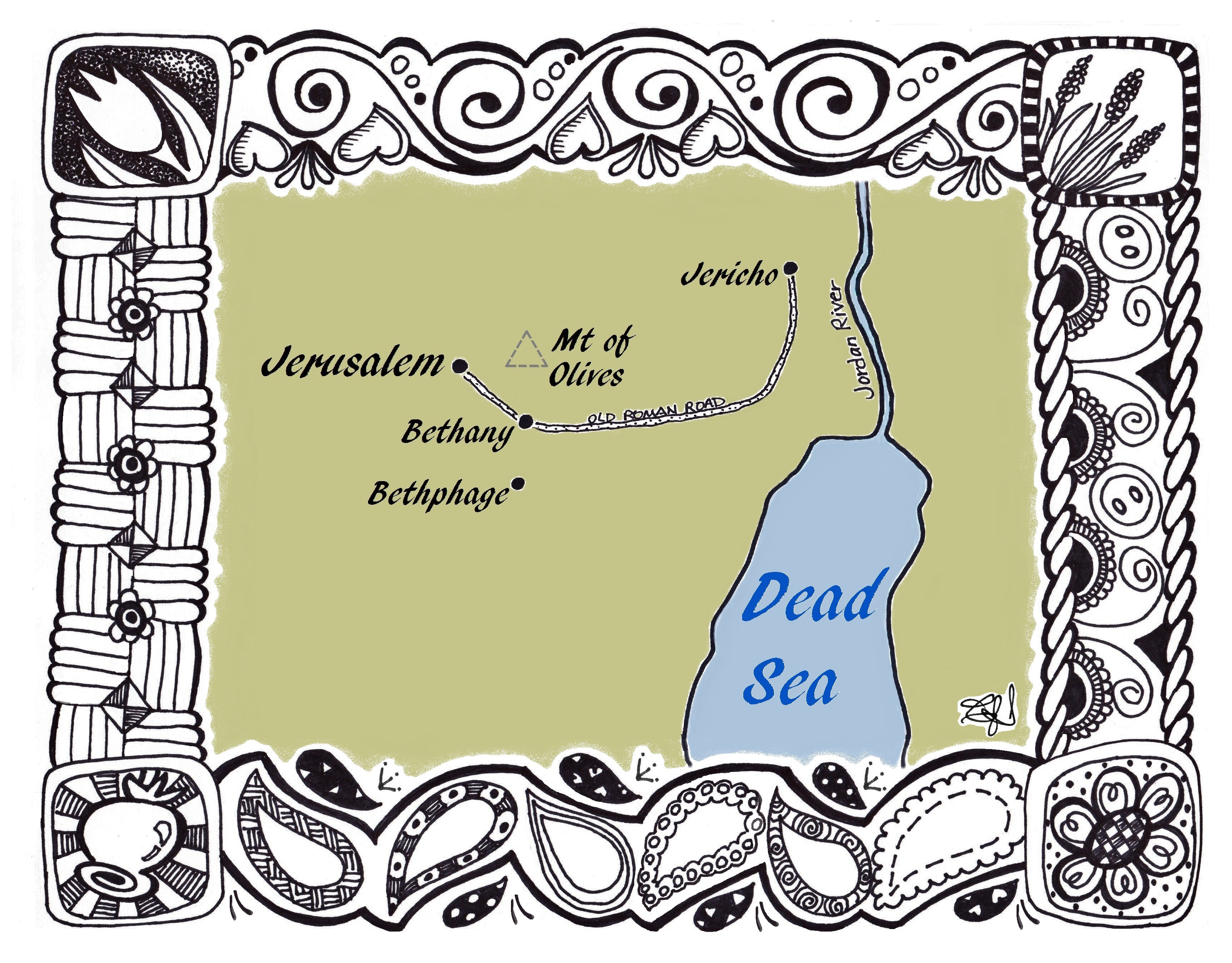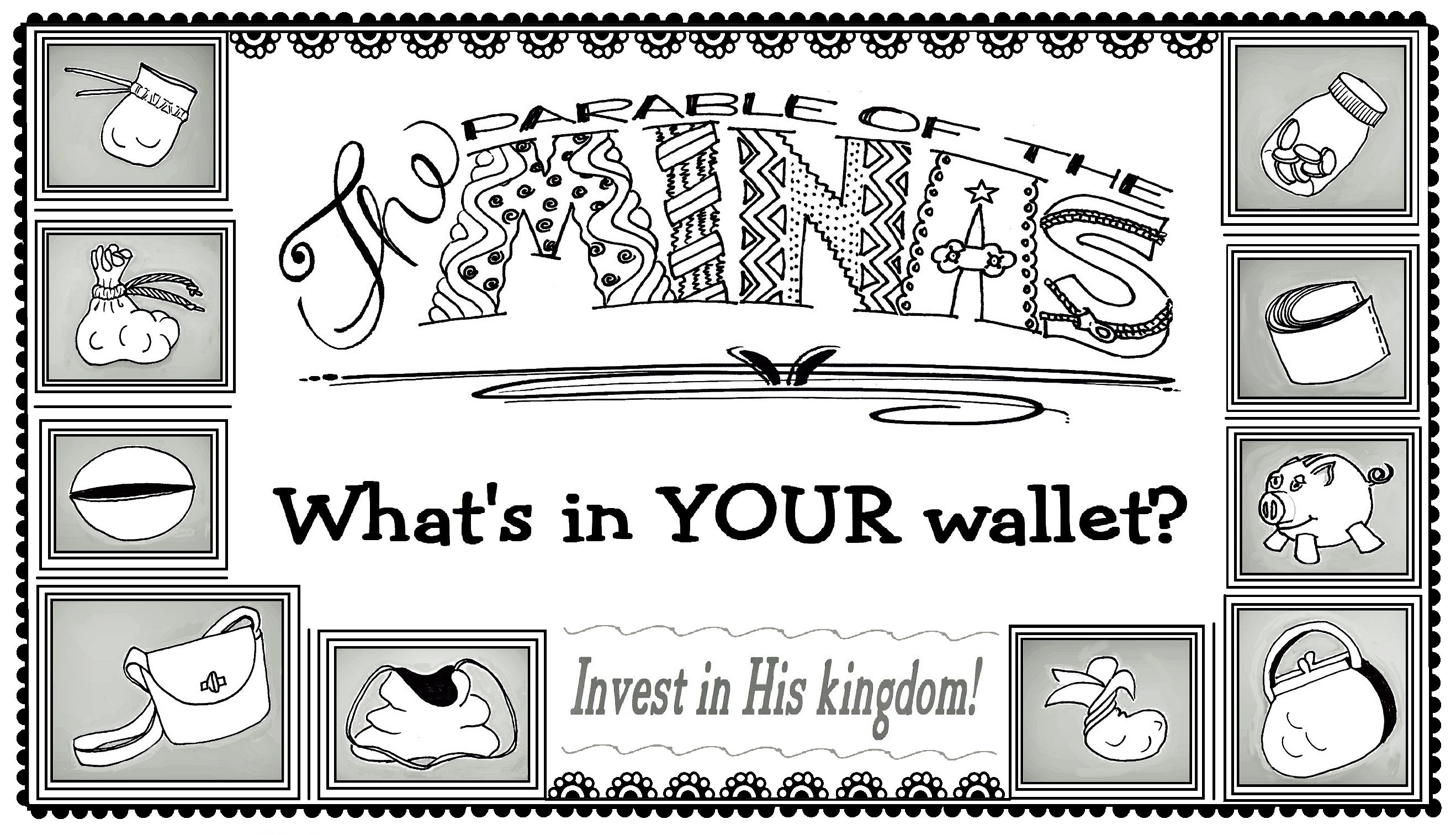Read Genesis 8 to Genesis 12
Interesting thing about this name Ra’ah. It is listed here as Strong’s Hebrew word #7200. It means to see intellectually, to look upon, inspect, regard, perceive. God revealed Himself, He appeared to Abram, and Abram perceived Him, Abram saw God with spiritual eyes, dimly, as in a mirror, veiled. We know that it was a perception because of John 1:18 and Exodus 33:20. You might be interested in what the folks over at GotQuestions.org have to say about people in the Old Testament “seeing” God. Later in Genesis we will read about the God-who-Sees-Me (Genesis 16:13), El Roi in Hebrew, which is the Strongs Hebrew word #7210. It comes from the word/name Raah, but means a sight, an appearance, a spectacle, a gazing-stock, a vision. And then there is Ra’ah (Strong’s # 7462) which is mentioned in Psalm 23:1, the Lord-my-Shepherd (the one who watches over His sheep). You can read about this name HERE.
.
Here are some things we might want to research:
What does the name Abram and then Abraham mean? What does the name Sarai and then Sarah mean? What also happened at the time God changed Abram’s name? Why might God change a name? What happened in 17:17 and 18:12? Research what the name Isaac means (21:1-7) – if you own a study Bible it should tell you in the margin what the Hebrew word for Isaac is in verse 3. Do you know what your name means? Does it reflect your character or a trait about you?
Consult the map in your Bible to find the places Abraham traveled to, and draw with colored markers on your own map a dotted line of his travels, coming down from (Haran), then to Shechem, then Bethel, and then a dotted line going south and west toward Egypt. Draw hills to show the hill country. Put dots where the cities were. Also, draw little illustrations of the altar that Abraham built at Shechem. If you have the journal book for this study there is a map on page 197 that you can use. Make a sticky-note of all the details of the altar and stick it next to your illustration.
Put God’s name, “Jehovah Raah” next to this altar in your Bible and on your map.
What type of structure did the Nimrodians build in Gen. 11:4? Did you know that there are step pyramid structures all over the world? Here, DuckDuck it and see for yourself (CLICK).
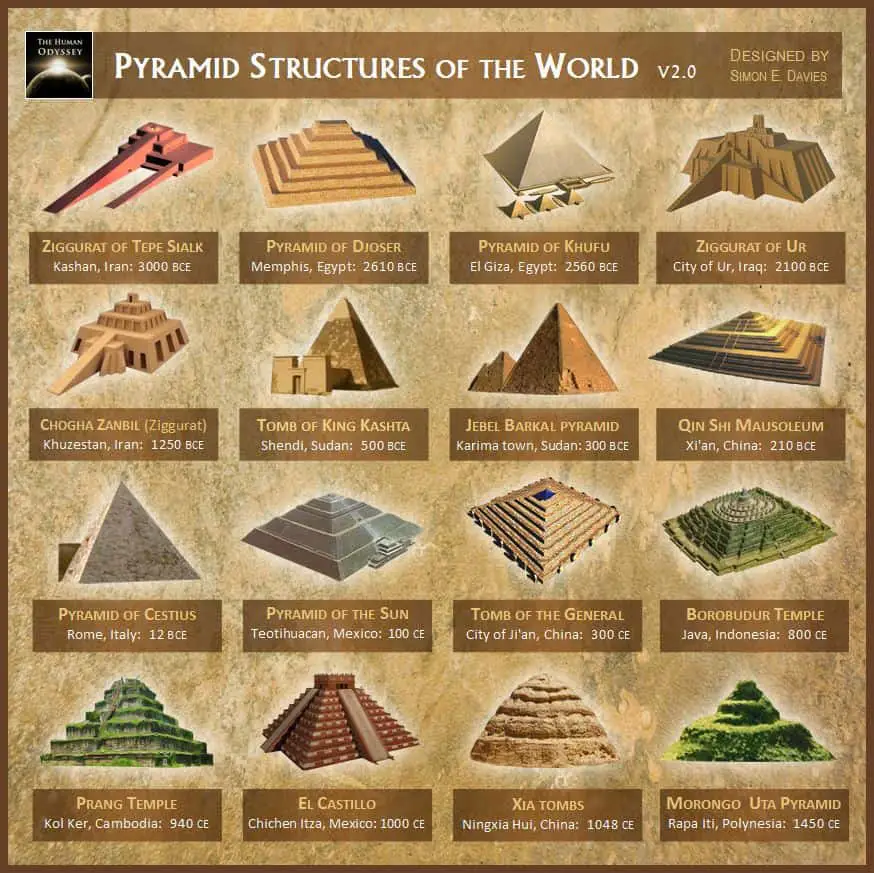
What did the people build the Nimrodian structure out of (Gen. 11:3)? What was their goal for building it (Gen. 11:4)? What was their fear in vs.4? What happened in verse 8?
How many continents are there on the earth? Do you know? In the midst of all the building and babbeling there’s a man’s name that is mentioned in Genesis 10:25. The verse even tells us what his name means. Peleg. “The earth was divided (#6385) in his days.” Genesis 11:9 says the builders of that tower were scattered abroad, over the face of all the earth. Could God have broken the continents apart as a way to scatter them, as it appears by the land shapes on a globe? Could this be why there are strange stone structures of amazing similarity all over the world? Isn’t it strange that giant’s bones have been found all over the globe, but not a single tool has surfaced which lends a hint to how these structures were built?
How many nationalities of people can you list from all the continents of the earth today? How many languages are spoken on planet earth? How are they related to each other?
.
“Abram/Abraham believed in the LORD and it was accounted to him as righteousness.”
Genesis 15:6; Genesis 3:6; Romans 4:3, 18 and 22; James 2:23
How is God’s plan for Abram in Gen. 12:1-3 different from the Nimrodians plan in Gen. 11:4? What was the command God gave to Abram in Genesis 12:1? Why would God send him to the land of the Canaanites (the giants)? Have you ever wondered where the Garden of Eden was? Look up the geographic hints in Genesis 2:8-15. Do some digging to see if you can come up with an approximate location. I’ll give you a hint. I believe it is the most hotly contested plot of land on the earth even still to this day. We’ll venture more down that rabbit trail in a coming chapter. Suffice to say, Abraham was a brave man.
Did Abram go alone as God asked – Gen. 11:31 & 12:4? Why did he “dwell” in Haran (Acts 7:4)? If Abram had obeyed God and not taken any family he might not have dwelled in Haran so long. He’d have had time to dig wells and plant gardens in Shechem, Bethel, or Hebron before the drought hit, which could have prevented him from having to flee to Egypt, where Sarah acquired Hagar. And if he hadn’t brought Lot, he wouldn’t have had to split the land or deal with that whole mess. But I think we can all sympthize with Abraham. How many of us would have gone alone into a proverbial “Sherwood Forest?” It’s sometimes scary to go into a dark room of our own houses. I wonder if Abram chanted the scriptures that I chant when I am scared, “God has not given me a spirit of fear, but of power and of love and of a sound mind” 2 Timothy 1:7. “There is no fear in love, but perfect love casts out fear” 1 John 4:18.
Who were Abraham’s other children (Gen. 23:1-6)?
What are the days of Lot (Luke 17:28-33) compared to? What does “they ate, they drank, they bought, they sold, they planted, they built” mean, do you suppose?
Highlight the words CURSE and BLESS in Genesis 12:2-3. Use a highlighter to highlight in your Bible every instance when you see the words BLESSED, CURSED, ALTAR, MOUNTAIN, and GOD’s NAME. Research other places in scripture where Abraham’s story is told (Acts 7:2-8; Romans 4:9-25; Hebrews 11:8-12); what can we glean from these passages?
Personal application
As you read the story can you imagine yourself in Abram/Abraham’s, or Sarah’s, or Lot’s, or any of the other character’s shoes?
Mark all the places you read about on the map and draw little pictures to show mountains, trees, water wells, the locations of towns, a dotted line to mark Abram’s travels, altars, people, etc.
Does anything in this passage of scripture remind you of a time when God appeared to you, promised you something either by a word that jumped off the pages of scripture at you while you were reading, or deposited into your heart as you were praying, or was spoken to you by a prophet, or preached from the pulpit and you knew it was a word from God for you, or by some other means, or has God ever shown you something that He wanted to give to you, or moved you to a new land? Has there ever been a time in your life when you knew what God wanted you to do, but you didn’t quite obey Him and suffered consequences because of it?
If you are in Christ, there is therefore now no condemnation. I hope you know that no sin has overtaken except what is common to man. Our flesh is constantly at war with our Spirit. The Spirit is willing, but the flesh is weak. When we quench the Holy Spirit, kick against the goads so to speak, when He is trying to lead us in the way we should go, and we let the flesh have its way, it just gives the flesh more power in our lives. When we confess our shortcomings to God, He is faithful and just to forgive us our sins, and cleanse us from all unrighteousness, giving more power to the Spirit.
Do you have a testimony of some struggle you’ve overcome by the power of God? Maybe it was a hard fought battle, but praise God, He brought you to a place of victory. Perhaps you struggled with fear? A health issue? Sexual sin? Worry? Maybe it was something else. Please share your testimony! Share the details and praise God for the victory!
Project (an altar that I can build)
I planted two trees, one on either side of the front door of my home. At the base of each tree I set a large stone. On one stone I wrote the word BLESSING, and on the other stone I wrote CURSING. I wanted those trees (and stones) to serve as reminders to me every time I entered or left my home to be a blessing in this world rather than a curse. I wanted them to remind me to show love, to be patient & kind, to give and bless and serve others with the love of God, both coming and going, remembering that I will receive a blessing from God for allowing His Spirit to move and work in me.
.
“Come and hear, all you who fear God, and I will declare what He has done for my soul.”
Psalm 66:16


